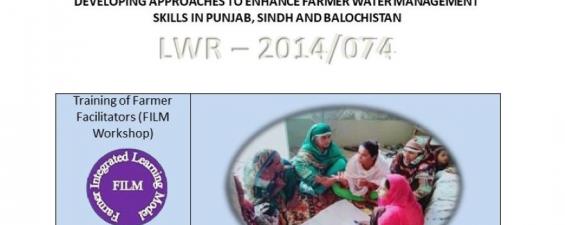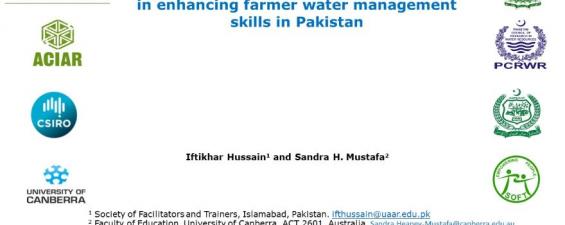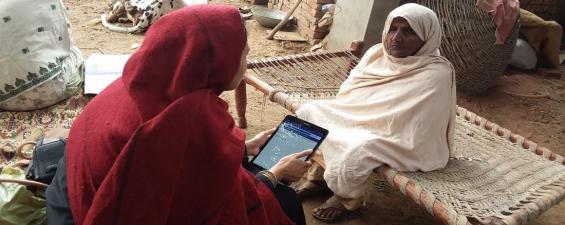On small- and middle-sized irrigated farms, livelihoods depend on applying the right amount of water at the right time. Tools and training exist to help small-scale irrigators with such decisions. However, the research question is “how can existing and new technologies be scaled out over the vast irrigated areas of Pakistan?”. This project tests how to select effective engagement and extension approaches through developing a holistic understanding of the context of communities – their culture, values, behaviours and priorities.
Current research
 This project aims to develop and scale out tools and approaches for increasing farmers’ irrigation management skills, and hence their livelihoods, on small- and middle-sized irrigated farms. This video explains the approach.
This project aims to develop and scale out tools and approaches for increasing farmers’ irrigation management skills, and hence their livelihoods, on small- and middle-sized irrigated farms. This video explains the approach.
Irrigation profitability in Pakistan is amongst the lowest in the world. Irrigation profitability is essential for reducing poverty, as there are strong links between irrigation, crop productivity and poverty alleviation.
The use of conventional irrigation methods and poor agronomic practices leads to overuse of water.
Farmers with small to medium holdings have had little access to technologies for irrigation, as affordable and accessible tools are neither produced nor widely distributed in Pakistan. The main extension challenge is how to scale out existing and new technologies over the vast irrigated areas of Pakistan.
The project now has a total of 31 sites in six districts. This provides a robust base to: assess farmer skills; investigate the value of irrigation management tools; explore different training models; and assess the impact of better management on profitability as well as on social wellbeing.
Each village has one learning model employed – either Discovery Learning, Value Management or Collaborative Problem Solving. The learning approaches in this project have successfully engaged women and youth, once considered inactive in project activities.
Partners
- University of Canberra (UC) has leading role by providing research and professional development services.
- Commonwealth Scientific and Industrial Research Organization (CSIRO) has role of development and provision of agricultural tools including Full Stop and Chameleon.
- Pakistan Council of Research in Water Resources (PCRWR) involved in water research aspects, demonstration site development and management of tools and technologies.
- National Agricultural Research Centre-Social Science Research Institute (NARC-SSRI) is engaged in baseline and endline surveys, and in determining the impact of changed WP practices on farmer households’ livelihoods.
- Society of Facilitators and Trainers (SOFT) is engaged with farmers throughout Pakistan to introduce new water management, irrigation technology and tools, as well as to establish new models and techniques for adult learning.




